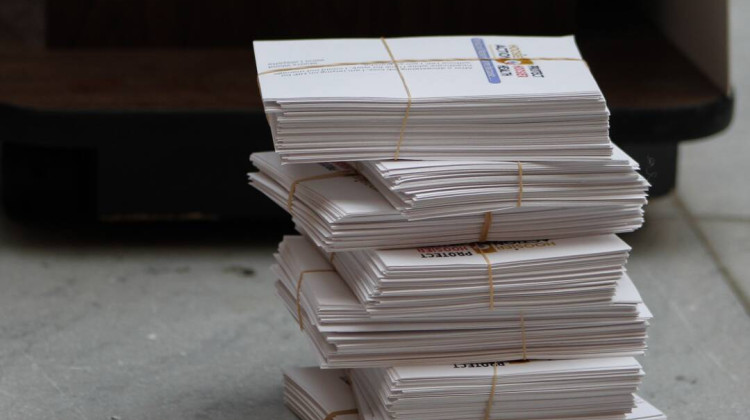
A federal judge has denied East Chicago residents’ request to intervene in court proceedings concerning lead contamination in East Chicago's Calumet neighborhood.
FILE PHOTO: Annie Ropeik/IPB NewsFederal Judge Philip Simon has denied East Chicago residents’ request to intervene in court proceedings concerning lead contamination in the Calumet neighborhood, formerly home to a public housing complex and an elementary school.
Simon’s ruling agrees with a prior magistrate judge’s opinion saying the request was made too late in the process.
“The motion to intervene in the case between the Environmental Protection Agency and the polluters was just one piece of many forms of advocacy that the residents along with the support of pro bono attorney help has been doing; so all that work will continue,” says Northwestern Environmental Law Clinic lawyer, Debbie Chizewer.
Chizewer works with the residents of the Superfund site and notes that, while the motion to intervene did cause the Environmental Protection Agency to take action more quickly at the site, residents are still concerned.
“There are still many outstanding issues at the site including contaminated groundwater, outstanding indoor lead dust issues, and many properties that still need to be cleaned,” says Chizewer.
Residents argue the EPA does not represent their interests.
“Residents voices aren’t always heard and haven’t been heard in this case in terms of how the work should go forward or the notice of activities at the site,” Chizewer says. “Being a part of the court proceeding would have provided the opportunity for residents to go to the court if there is a problem with an implementation consent decree.”
While residents may be unable to have a role in the courtroom, they still plan to make their voices heard.
“Every week, residents are going to be raising their voices and pressuring EPA and the polluters to do a better job to protect the health of the community,” says Chizewer.
Residents and advocacy groups originally filed for intervention in 2016, arguing recent developments at the U.S.S. Lead Superfund site – along with changes to the remediation plans – should permit them a role in court proceedings.
 DONATE
DONATE







 Support WFYI. We can't do it without you.
Support WFYI. We can't do it without you.